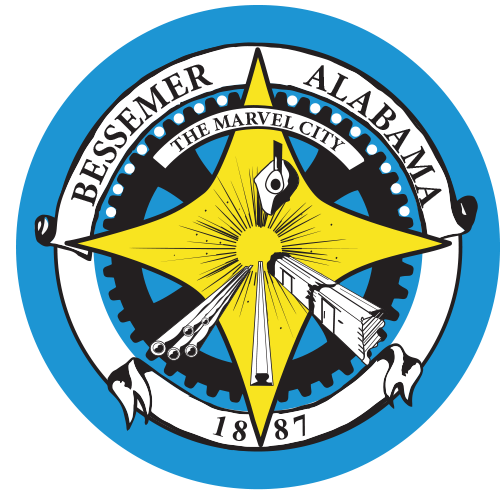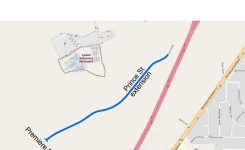Government
Affirmatively Furthering Fair Housing Consolidated Plan Version
Affirmatively Furthering Fair Housing
Fair housing activities include the Analysis of Impediments to Fair Housing Choice and Actions to Overcome the Effects of Identified Impediments.
FAIR HOUSING PLAN FOR THE CITY OF BESSEMER
2015-2019
This document is prepared in order to comply with the requirements of the Department of Housing and Urban Development (HUD). The City, as a grantee, under various HUD programs, must certify that it “affirmatively furthers fair housing” within its jurisdiction. It is the policy of the City of Bessemer to promote fair housing choice and to eliminate policies or actions, which either deliberately or unintentionally have the effect of hampering the free exercise of housing choice for its citizens.
Analysis of Impediments to Fair Housing Choice
During the preparation of the City of Bessemer’s 2015-2019 Consolidated Plan the Department of Economic and Community Development examined census data to determine racial patterns in the housing market. This analysis revealed the following:
■ All census tracts within the City contain a mixture of races. Census tracts range from 90%+ black, 5%+ white and 5% +other. However, there are many census tracts that are heavily mixed.
From this demographic review, it appears, upper income families, both black and white, left the city in significant numbers over the last decade or so. Whites have decreased as a percentage of the City’s population and younger families of both races have opted to live outside the City.
Public Housing and Section 8 voucher programs were examined for housing patterns. Records of the Bessemer Housing Authority reveal that at any given time the housing units under their jurisdiction are 95% occupied by black households and 5% by white households. This does not reveal a pattern of discrimination, considering the overall 70% black, 30% white, racial makeup of the City, but it may show the reluctance of low-income families to racially mix housing: even when that housing is provided by government subsidy.
Another way to analyze fair housing is to review public policies, practices, and procedures involving housing and housing-related activities, including zoning and land use policies. The City of Bessemer follows the International Building Code Congress standards for building practices and health and safety regulations. The City also has no unreasonable land use controls or exclusivity zoning. Therefore, no City policy affecting fair housing is observed.
The analysis of housing affordability contained in the Consolidated Plan reveals that Bessemer has a very affordable housing stock. This housing, in many cases may need rehabilitation, but is surprisingly affordable, even on the upper end of the housing market. Bessemer’s property taxes and fees are among the lowest in the region and state law provides for tax breaks for the elderly. This fact places a burden on the City to maintain basic services because of low residential property values and the large numbers of elderly households paying no property taxes.
Over the past decade the economy of the City of Bessemer has steadily improved. Recent evidence suggests that the growth in new business and jobs could help to create a healthier demand for housing. Also, the perception of Bessemer as an undesirable place to live has been mitigated to some degree because of positive publicity resulting from economic growth. The City has and will continue to encourage an economically diverse housing market while at the same time continuing to meet the needs of its low-income residents. The City applied for and received Neighborhood Stabilization Program (NSP) funds to address blight caused by foreclosed homes and to provide housing for low-to-moderate income individuals. The NSP program resulted in the rehabilitation and sale of seven houses for low to moderate income and very low income individuals. Housing assistance programs identified in the Consolidated Plan are intended to accomplish that objective.
Finally, the City has considered the nature and extent of fair housing complaints/suits and other data that may point to impediments in the City’s policy and goal of fair housing. Interviews with city departments and agencies dealing in housing revealed only one Fair Housing complaint filed within the City of Bessemer over the last five years and that complaint was dismissed.
Identified Impediments to Affordable Housing Choice
Lack of Transportation, Limited Employment Opportunities, Poor Housing Stock, Poor Credit Scores and Housing for the Disabled have been identified as the primary impediments to fair housing choice
Transportation: Access to employment, medical services and social services are limited by the availability of public transportation. Limited access in any of these areas can limit fair housing choice. The present public transportation system is provided by Jefferson County’s MAXX System. The system does serve some areas of the City, but many areas, especially those areas most heavily populated by the elderly, have accessibility problems.
Employment/Economic Development: The City of Bessemer’s +10% unemployment rate relates to the general economic downturn, but it also related to a lack of job availability specific to the area. The need for new economic development activities and job creation is essential to fair housing choice.
Poor Housing Stock: The City of Bessemer’s housing stock is in generally poor condition. Foreclosed and abandoned properties number among the highest in Alabama with a HUD needs analysis score ranging from 16-19. Blighted housing in many areas of the City impacts not only quality of life, but access to insurance coverage, which, in turn, limits fair housing choice. In addition, the condition of housing limits the housing accessibility to those who are disabled.
Poor Credit Scores: Insufficient credit scores is a major impediment to Housing in the City of Bessemer. Poor credit score eliminates many from consideration for new home loans and loans for housing rehabilitation.
Housing for the Disabled: The City has a large elderly population and many elderly suffer from disabilities. These disabilities can have the effect of forcing the disabled from their homes due to the lack of facilities that would otherwise allow them to continue to live independently.
Actions to Overcome Identified Impediments
The City has addressed and continues to address all the identified impediments to fair housing in the Bessemer community. The following is an overview of the actions and resultant progress made relative to housing impediments over time.
Transportation:
In order to enhance the availability of transportation for low-to-moderate income persons, the elderly and the disabled, the City contributes to the Jefferson County Mass Transit System. The City has conducted transportation studies in the past and is presently in the process of participating in a study with the Regional Planning Commission in hope of facilitating the construction of a transit hub which stands to provide improved transportation services for the citizens of Bessemer.
Employment/Economic Development:
Economic Development is the key to lowering the unemployment rate. Lower unemployment translates to an improved ability for Bessemer’s citizens to earn the income necessary to qualify for loans and improve housing choice. The City of Bessemer has worked diligently, and will continue, to attract new business and help grow existing concerns. The challenge for meeting underserved needs in creating job opportunities with livable wages has been great. Incentives for attracting investment include such tools as tax abatements and Tax Increment Financing. The City recently landed an Amazon Fulfillment Center that is expected to create between 1500 and 3000 jobs. The Tannehill Promenade was a new development when the last CDBG Consolidated Plan and Fair Housing Plan was considered. The $100,000,000.00 development has provided hundreds of new jobs and has been an economic engine providing close to a 30% increase in the City’s tax base relative to FY 2010. Construction of the Dollar General Distribution Center has added approximately 600 jobs in its first phase and is expected to provide over 1000 jobs when completely implemented. The CSX Intermodal facility made great strides toward the revitalization of the old Pullman Standard facility and created 12 new jobs. The Tannehill Promenade continued to grow with the opening of the new Michaels store added in October of 2012 and Firehouse Subs was added in May of 2012. A new warehousing facility adjoining the new Norfolk Southern Intermodal facility adjacent to Bessemer will create more than 1000 jobs. The re-opening of the Amsted Rail/Griffin Wheel plant provided 150 jobs. Precision Grinding’s expansion resulted in 25 new jobs. The $50,000,000.00 US Pipe development added 100 jobs. The $21,000,000.00 Intertec development of 2013 is expected to add 100 jobs when it is complete. The City is also involved in bringing other businesses to Bessemer that are expected to bring upwards of $34,000,000.00 in development to the downtown area. The City also anticipates an improved business climate with the introduction of new businesses and the expansion of existing businesses. Some of the more notable projects in process and in place include the conversion of the Masonry Arts Company to JB Processing, LLC with an expected 30 new jobs, the opening of Steyr Arms USA and the expansion of Milo’s Tea. During the last five years the City of Bessemer has been one of the most active economic development areas in the state. It is anticipated that the mix of industrial and retail development will continue at a growing pace from 2015-2019. The City is addressing needs associated with employment at an exceptional rate.
Poor Housing Stock:
The City of Bessemer has addressed and plans to continue addressing the problems associated with the poor condition of its housing stock and the opportunities for home ownership with its CDBG Housing Program. The City, as a CDBG entitlement, has a broad and effective housing program designed to provide loans and grants to improve housing and to provide opportunities for home ownership.
The City has allocated $250,000.00 annually in General Funds to demolish blighted housing during this Consolidated Planning period. The City is demolishing, on average, 120 houses per year. The presence of dilapidated housing lowers property value and limits the ability of homeowners living adjacent to blighted properties to obtain and maintain insurance coverage on their homes. The City’s Clearance program has directly addressed these issues and will continue to do so.
The City has begun a partnership with Habitat for Humanity for housing rehabilitation and new construction. The partnership will serve to leverage City rehabilitation funds and take advantage of the properties acquired through demolition. Habitat for Humanity will build ten new houses in Bessemer in October in 2018 and will build an additional five (5) homes later in the year. Habitat for Humanity are also working to build another 10 new houses in Bessemer in FY 2019.
Recently the Bessemer Housing Authority undertook the complete renovation of two large multi-family facilities, demolished one entire multi-family complex and has begun the process of building a subdivision of single family homes. The Housing Authority is dedicated to transitioning their residents to home ownership. As such they have referred residents to the City who were able to take advantage of CDBG funded programs that resulted in home ownership.
The City maintains a broad housing rehabilitation program based on CDBG funds. Those programs consist of grants to address the needs of the disabled and loans for the complete rehabilitation of houses. The City also provides loans for rehabilitation and acquisition. The City works with its Police Department, Fire Department and institutions like the UAB West Hospital to identify homeowners who have housing needs relative to disabilities. The City routinely builds wheelchair ramps and makes repairs related to the American’s With Disabilities Act, as well as addressing many of the other needs of disabled persons, through its CDBG funded Emergency Housing Grant program. In many cases the repairs facilitated by the Emergency Housing Repair Grant program serve to allow the disabled to continue living in the own homes.
The City also maintains CDBG funded housing loan programs that are designed to bring houses into compliance with local and state housing codes. Components of this program also serve to facilitate home ownership while rehabilitating existing houses.
Low Credit Scores are a serious problem and impediment to the availability of housing loans for purchasing homes and for the rehabilitation of homes. The City has partnered with organizations to provide credit counseling services to CDBG loan applicants to address a primary impediment to Fair Housing. The City offers those with low credit scores the opportunity to participate in CDBG funded housing loan programs upon completion of credit counseling. In addition the City has sponsored large seminars on homeownership conducted by local private lending institutions.
Housing is an ongoing issue, but existing programs, initiatives and partnerships are, and will continue to address those issues at an increasing rate.




